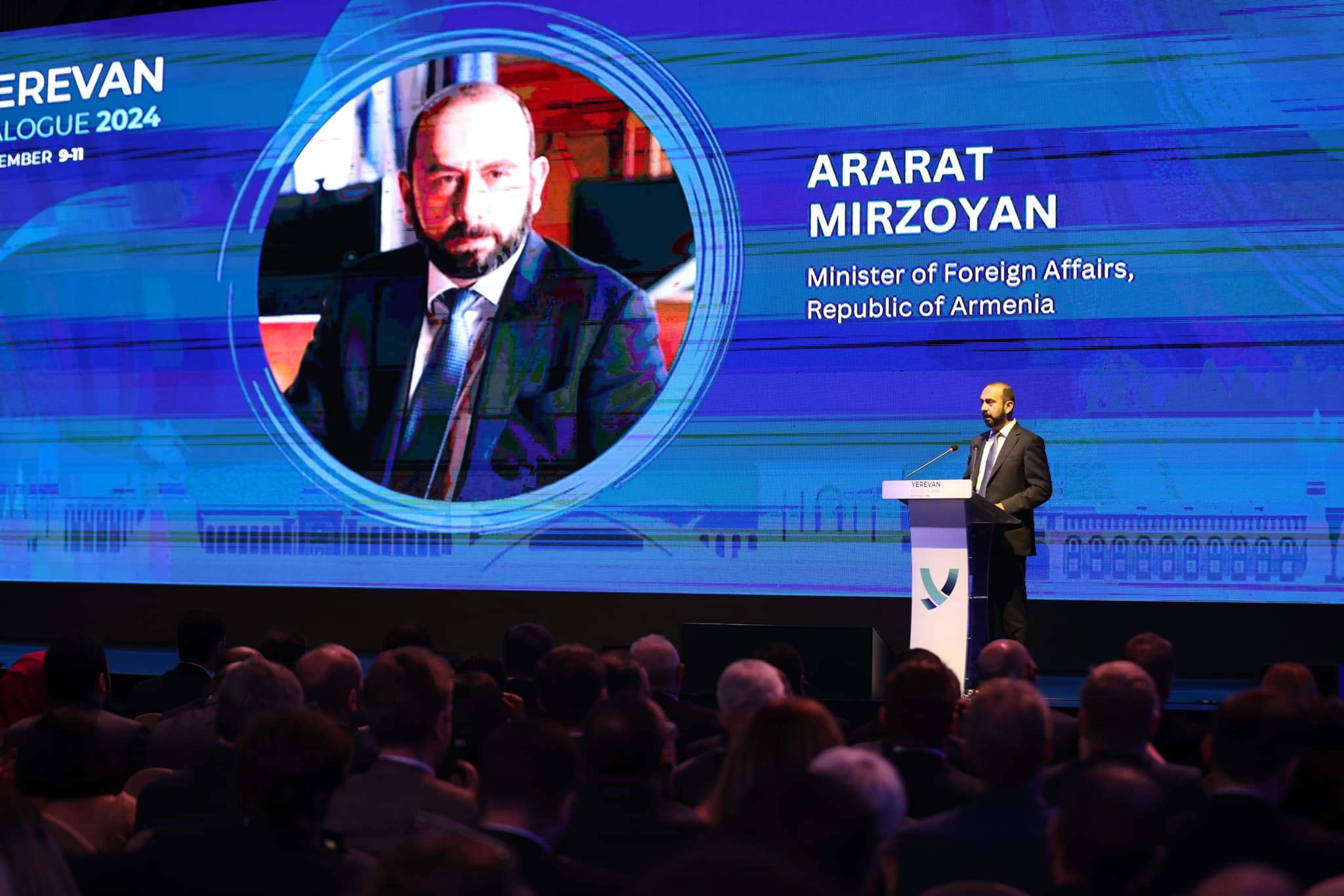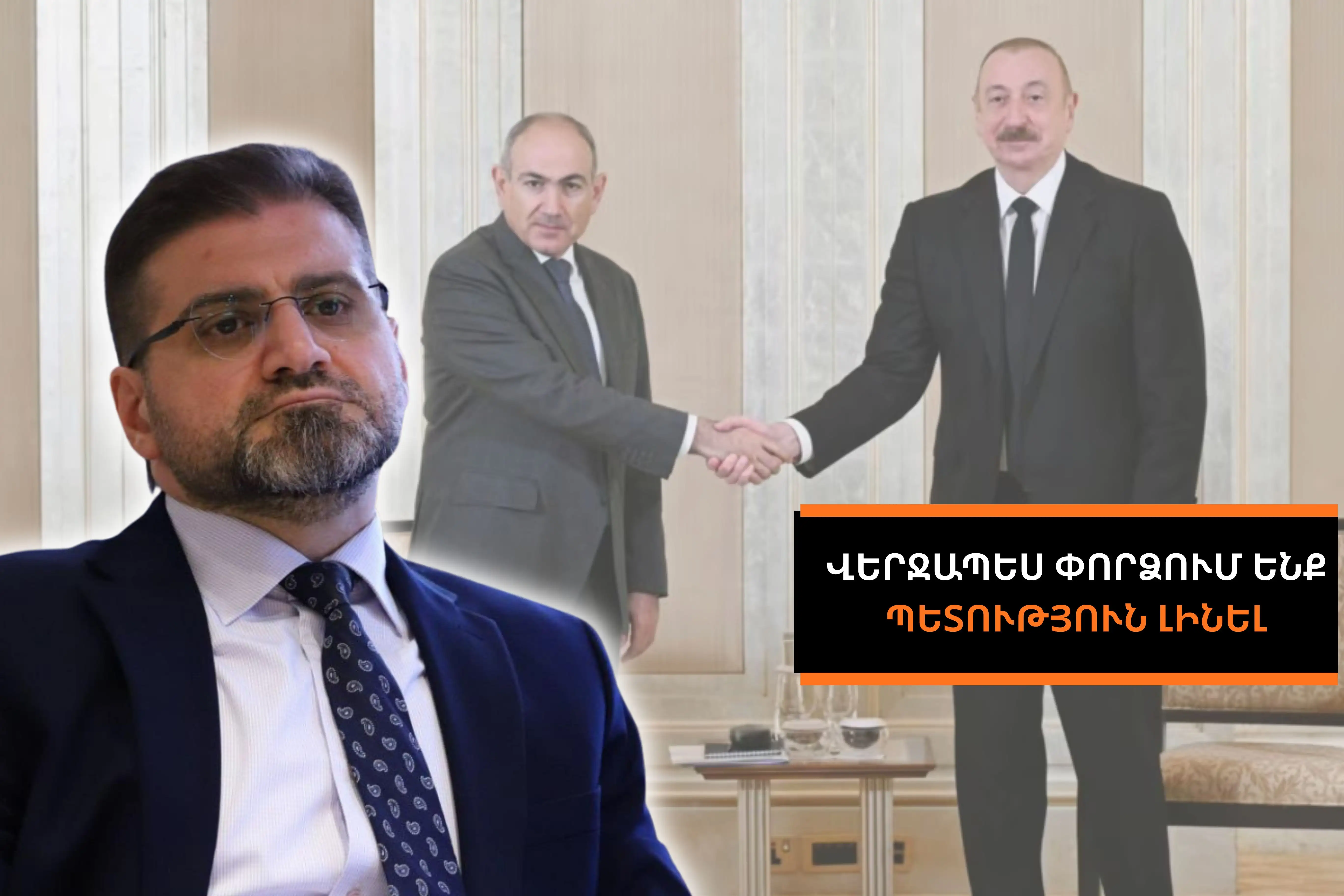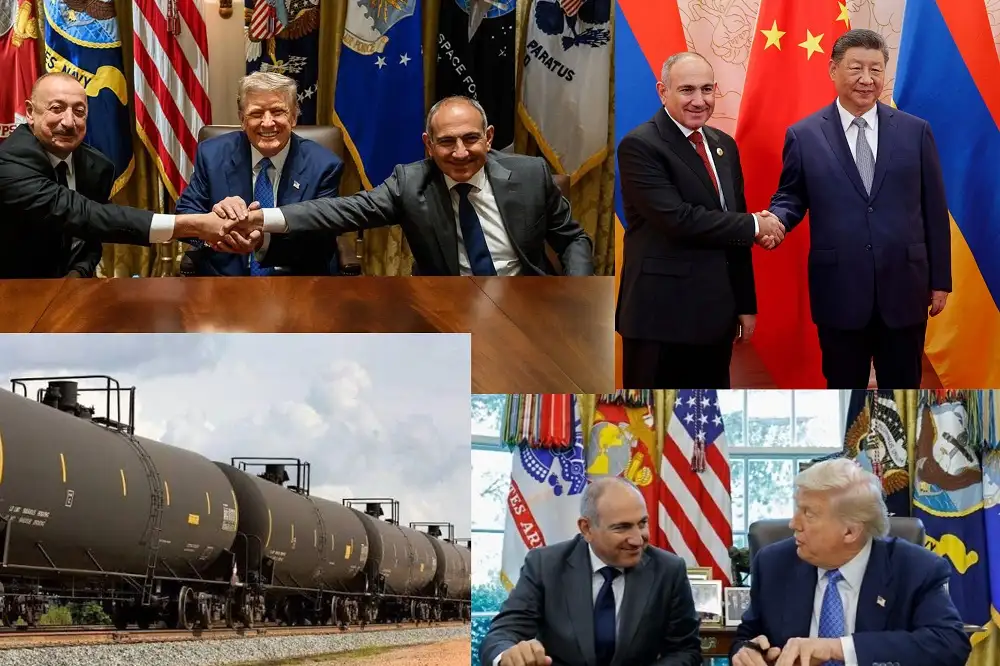Foreign Minister Ararat Mirzoyan gave a speech at the opening of the "Yerevan Dialogue" event.
"The Armenian Prime Minister has already comprehensively addressed and presented our peace agenda, presented the details of the ongoing processes in the region, brought arguments and counter-arguments. Therefore, I will try to share my thoughts on a slightly different, more unique nature. I also aimed to provoke in a positive sense and generate our dialogue today and tomorrow.
Dear colleagues,
As the world-famous American writer of Armenian origin, William Saroyan, would say in his play "My Heart's in the Highlands," "Something is wrong somewhere." It seems simple, but let's face it: this phrase fully describes the situation here and in various other regions.
Of course, it is necessary to admit that our world has never been distinguished by infallibility, equal protection of everyone's rights, and unwavering observance of mandatory coexistence rules for everyone. Still, especially the events of recent years have significantly strengthened the truth of the thought I quoted. Moreover, the mad rush of changes and uncertainties continues, increasing the degree of unpredictability.
This is not just a theoretical, scientific claim but a visible and tangible reality. A reality that has a direct impact both on the global level, on international relations, and on the individual level, on a large number of human destinies; the human losses and mutilated destinies recorded as a result of artificial and natural disasters in different corners of the world are not just astonishing statistical numbers, but particular human lives with names, surnames, and faces.
Open and unpunished violations of international law norms, deepening crises, ongoing wars, and sometimes crimes against humanity testify to the actual disintegration of the world order that has existed for many years and more or less acceptable and viable rules of the game.
Controversy and competition between global players further deepen the polarization and fragmentation of world politics, while various regional actors, in turn, challenge the world order, claiming to play a greater role and shape their spheres of influence. Small states strive to navigate the rough ocean as safely as possible, having in front of them the imperative to protect and preserve their own statehood, sovereignty, and territorial integrity.
Along with creating many benefits, technological progress brings new challenges for states and people, from cyber security issues to artificial intelligence. The consequences of these are not yet fully understood or revealed and are thus unpredictable. Hybrid threats and the deliberate spread of disinformation add a new layer to already complex, multi-layered international crises.
As a minister of a country that has gone through and is going through democratic transformations that have seemed impossible for a long time, I am aware of the importance of valuing and maintaining this achievement and steadily moving along the democratic path of development, among the existing challenges, I must also emphasize the threats to democracy, its values and principles. , as well as the urgent need to prove with joint efforts that democracy can achieve tangible results, including being a guarantor of crisis resistance, stability, and development. To give at least a little optimism to what I said, I can cite our example, Armenia, where with the mechanisms provided by democracy, in particular free and competitive elections, just three years ago, we were able to overcome the deep public crisis in which our society found itself and the aftershocks of which continue to this day. It must be admitted that they still partially make themselves feel.
Returning to the geopolitical panorama, we must note again that the existing international mechanisms are no longer able to effectively address the existing challenges. Moreover, since changing the created situation is impossible, we cannot avoid the worsening of the situation, which I will not exaggerate if I say that it is one of the most difficult since the Second World War.
The description of this image is certainly not intended to generate additional pessimistic or apocalyptic feelings in this audience—exactly the opposite. I believe that the full awareness of the picture emphasizes the imperative to stop the wrong process and change the picture, just as the accurate diagnosis of the disease allows the required treatment to be carried out. Again, that transformation is not a theoretical judgment but an absolute, practical necessity.
And so, if we all realize that something is wrong somewhere and that this process is leading us all to another abyss where there will be no long-term winners, what will be civilized humanity's reaction in this situation? Restoring the world order based on international rules and strengthening its legitimacy is the only way to ensure the advancement of global security and development agendas.
However, when everyone - individuals, states, non-governmental organizations, and international corporations - live and are guided by their truth, how do we arrive at a common denominator, standard rules, and common inviolable truths? Talking. The dialogue, why not - the clash of opinions, the debate can create an opportunity to discover common truths and form standard rules.
Will dialogue guarantee success? No, but the lack of dialogue will only deepen the existing crisis.
Armenia's approach and belief are to continue the dialogue even in the most challenging situations, try to achieve standard rules of coexistence, respect them, at least tolerate each other, and, if possible, cooperate in a mutually beneficial way. This is precisely the approach we adopted, striving for lasting peace in our region.
Everyone present will agree with Martin Luther King's statement that peace is not just the absence of shooting. Indeed, stable, fair, and dignified solutions are needed, and they require strong political will and commitment. The Republic of Armenia, despite all the challenges and difficulties, has shown and continues to show that will and responsibility.
And today, dear partners, we suggest using the "Yerevan Dialogue" to discuss global challenges. A platform where I hope it will be possible to take another step closer to formulating general rules and shaping the future today.
Allow me to finish my speech with Saroyan's words. After all, today is forever, yesterday is still today, and tomorrow is already today.
I thank you and wish the first "Yerevan Dialogue" a smooth process," he said in his speech.




















